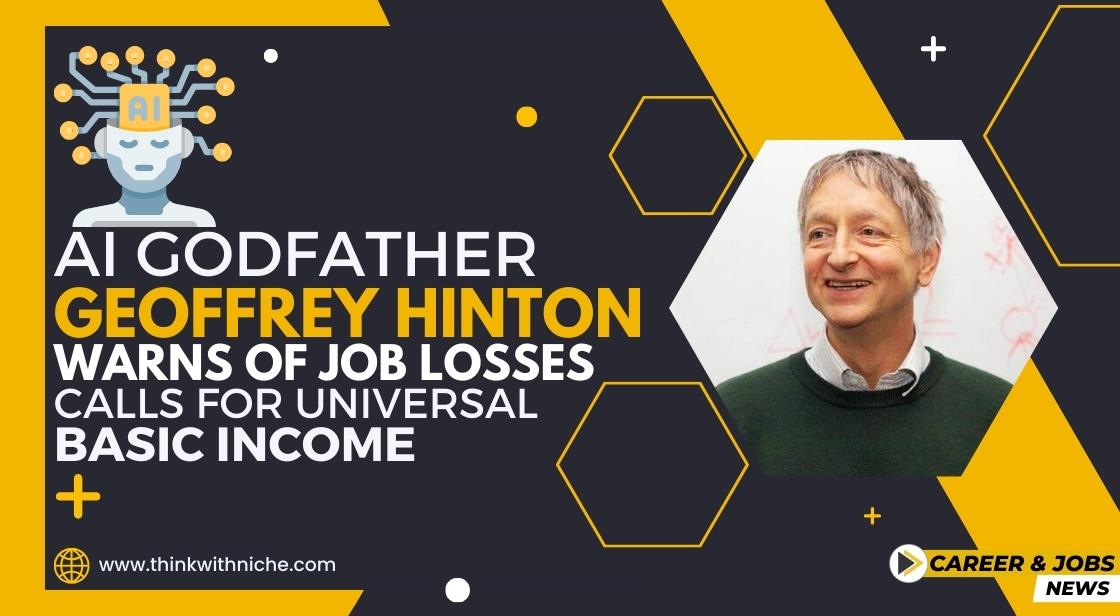AI Godfather Geoffrey Hinton Warns of Job Losses, Calls for Universal Basic Income

News Synopsis
AI adoption is booming across industries, but a leading expert, Geoffrey Hinton, often referred to as the "AI godfather," is raising concerns. Hinton warns that AI "can take lots of mundane jobs," potentially creating significant unemployment. He suggests a universal basic income (UBI) as a possible solution to mitigate the economic impact.
AI: Boon or Bane? A Double-Edged Sword
While AI promises to revolutionize various sectors by boosting efficiency and productivity, its impact on the workforce remains a hot-button issue. Companies like InSilico Medicine, BenevolentAI, Atomwise, and XtalPi are leveraging AI for drug discovery, while others like Antidote and BullFrog AI are optimizing clinical processes. A McKinsey report estimates that the semiconductor industry alone could see AI's contribution rise from $5 billion to $8 billion annually, reaching only 10% of its full potential.
Job Automation Concerns
On the flip side, around 38 percent of jobs in the United States are at high risk of automation, while 30 percent of jobs in the United Kingdom are similarly at risk, as reported by Statista. The World Economic Forum's "The Future of Jobs 2018" report indicates that approximately 52 percent of current job tasks will be performed by robots by 2025.
Industry Responds: Reskilling and New Opportunities
While some entry-level jobs might be affected, AI is also expected to create new opportunities in fields like data annotation, data science, machine learning, analytics, and cybersecurity. To harness AI's full potential, experts emphasize the need for upskilling and reskilling the workforce.
Siddharth Chandrashekhar, an advocate and counsel at the Bombay High Court, stresses the importance of robust regulatory frameworks in India to address the ethical and legal complexities of AI deployment. He emphasizes the need for transparency, accountability, data privacy safeguards, and preventing algorithmic biases in AI systems.
Payal Nambiar, CEO and director of B-Square Group, offers a more optimistic perspective. She believes AI will complement and empower humans, not replace them. Nambiar envisions a future where humans and machines work together in harmony.
Devroop Dhar, co-founder and managing director of Primus Partners, emphasizes India's potential as a major AI hub. He highlights India's position as the world's third-largest AI talent pool and anticipates numerous job opportunities in areas like data collection, data annotation, and training AI models, even for those not interested in development roles.
AI Development in India
Devroop Dhar, co-founder and managing director of Primus Partners, highlights, “India, already home to the third-largest AI talent pool globally, is expected to become a major hub for AI development, creating numerous job opportunities. For those not keen on taking up development roles, there will be opportunities in areas like data collection, data annotation, and training AI models.”
Conclusion
As the debate over whether AI is a boon or a bane continues, it is clear that while AI holds the potential to revolutionize industries and economies, it also poses significant challenges, particularly in terms of job displacement and ethical deployment. Balancing these factors through careful regulation, reskilling, and a thoughtful approach to AI development will be crucial in navigating the future landscape.
You May Like









